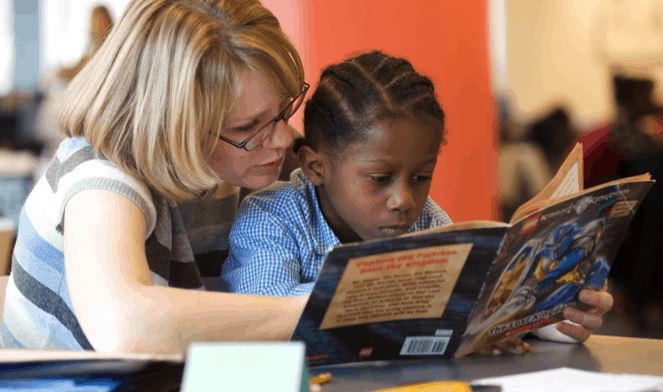In the realm of education, fostering a love for reading is a transformative journey that extends beyond textbooks. This comprehensive guide delves into effective tutoring interventions designed to ignite the literary passions of students, creating a lifelong appreciation for the written word.

1. The Power of Personalized Book Selections
Guiding tutors to understand each student’s interests and preferences allows for tailored book selections. This intervention ensures that the chosen reading material resonates with the individual, making the reading experience more enjoyable and relatable.
2. Creating Engaging Reading Environments
Setting the stage for a love for reading involves more than just books. Tutors can intervene by cultivating engaging reading environments, whether in-person or virtually. Comfortable spaces, good lighting, and a variety of reading materials contribute to a positive and inviting atmosphere.
3. Dynamic Reading Aloud Sessions
Tutoring interventions can incorporate dynamic reading-aloud sessions, where tutors bring stories to life. By infusing enthusiasm, expression, and interactive discussions during these sessions, tutors captivate their students’ attention, making reading a captivating and shared experience.
4. Encouraging Book Discussions and Reflections
Engaging students in discussions about the books they read fosters critical thinking and a deeper connection with the material. Tutors can intervene by encouraging open-ended questions, allowing students to express their thoughts, and facilitating group discussions to enhance comprehension.
5. Integrating Multisensory Approaches
Tutoring interventions that integrate multisensory approaches enhance the reading experience. Incorporating visual aids, hands-on activities, and relevant audio elements creates a holistic engagement that caters to various learning styles, making the reading process more enjoyable and memorable.
6. Leveraging Technology for Literary Exploration
In the digital age, tutoring interventions can harness the power of technology to foster a love for reading. Recommending e-books, audiobooks, and interactive reading apps provides students with diverse formats, accommodating their preferences and bringing reading into the modern era.
7. Establishing Reading Goals and Rewards
Tutoring interventions can introduce structured reading goals tailored to each student’s pace and capabilities. Celebrating achievements with small rewards, such as certificates or incentives, motivates students to view reading as a fulfilling journey with tangible milestones.
8. Addressing Reading Challenges with Patience
Reading difficulties may arise, and tutoring interventions should address these challenges with patience and understanding. Tutors can implement targeted strategies, such as reading exercises, comprehension aids, and personalized support, to help students overcome obstacles and build confidence.
9. Connecting Literature to Real-World Relevance
Tutoring interventions should bridge the gap between literature and real-world relevance. By connecting stories to contemporary issues, personal experiences, or societal themes, tutors help students see the practical applications of reading, making it a meaningful and relatable skill.
10. Cultivating a Home Culture of Reading
Encouraging a culture of reading beyond tutoring sessions is vital. Tutors can intervene by providing resources and guidance to parents, promoting the importance of reading at home. This collaborative effort ensures a continuous and supportive environment for the development of a love for reading.
11. Embracing Diverse Literary Genres
Encourage students to explore a variety of literary genres, expanding their reading horizons. Tutors can intervene by introducing diverse genres such as fantasy, mystery, historical fiction, and non-fiction. This broad exposure helps students discover their unique literary preferences.
12. Establishing Reading Challenges and Clubs
Introduce reading challenges and book clubs within the tutoring framework. Challenges could include reading a certain number of books in a specified time, while book clubs facilitate peer discussions. These interventions foster a sense of community around reading, making it a social and collaborative endeavour.
Conclusion
Tutoring interventions focused on fostering a love for reading go beyond improving academic performance; they lay the foundation for a lifelong journey of literary exploration. By integrating these strategies, tutors become catalysts for transforming reading from a task into a joyous adventure. As students embark on this literary odyssey, guided by the passion instilled through tutoring interventions, they not only enhance their academic skills but also cultivate a love for reading that will enrich their lives for years to come.




